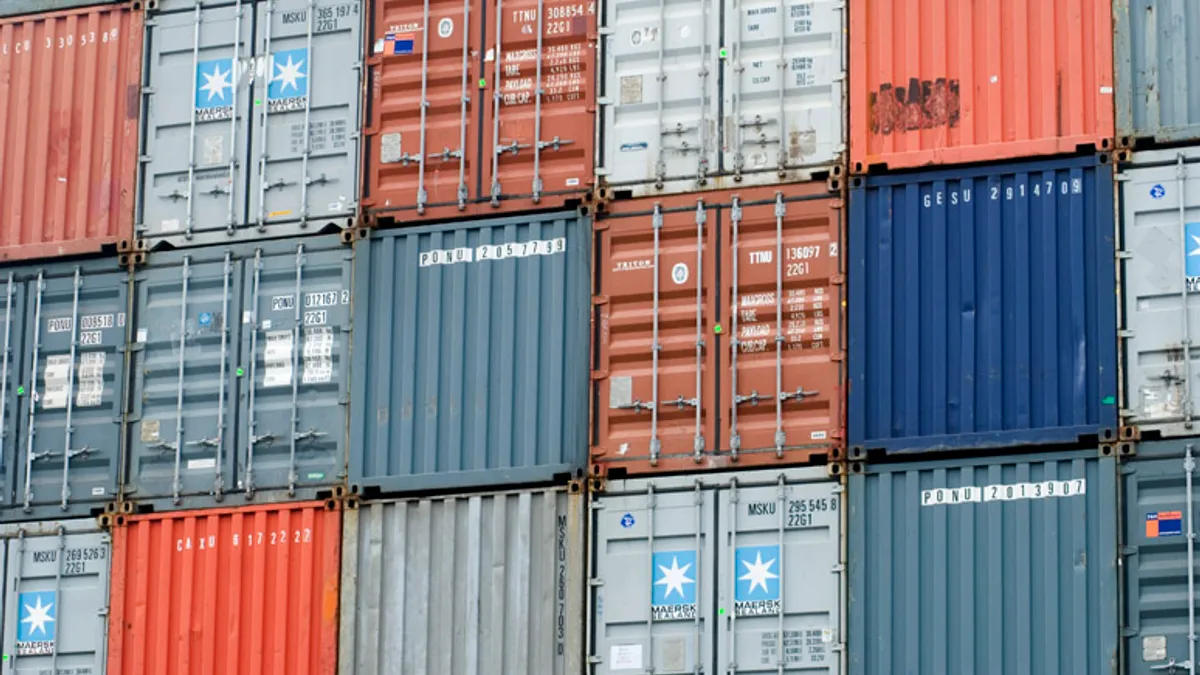Dive Brief:
- The 1995 Basel Ban Amendment will finally become international law following Croatia's recent ratification of the measure. It prohibits the export of hazardous waste from member states of the European Union, Organization for Economic Cooperation and Development (OECD) and Lichtenstein to all other countries.
- Croatia was the 97th country to ratify the ban, surpassing the necessary three-fourths of the parties that were present and voting in 1995. This agreement will become an article in the Basel Convention and will take effect on Dec. 5.
- This will cover dozens of items considered hazardous because they are toxic, explosive, flammable, poisonous, infectious or oxidizing, which could lead to combustion. This includes (but is not limited to) medical wastes; various chemical wastes; industrial residues; wastes from the surface treatment of metals and plastics; metals such as lead, mercury, cadmium and tellurium; copper compounds and zinc compounds.
Dive Insight:
The Ban was adopted in 1994 to address challenges presented by developed countries exporting hazardous waste to developing countries.
However, ban opponents said the agreement wasn't a legally binding part of the Basel Convention because it hadn't been ratified by a required three-fourths majority. Individual countries have sporadically ratified it in the 25 years since and Croatia tipped the scales.
"Now it is law and cannot be ignored, and thus those that have not properly transposed this into their national legislation will need to do this ensuring more actual enforcement," Jim Puckett, executive director of the Basel Action Network, told Waste Dive via email.
A number of major countries – including the U.S., Canada, Japan, Australia and New Zealand – are still absent from the agreement. One of the sticking points for the U.S. is a ban on exporting many electronic wastes that the agreement considers hazardous.
"The U.S., which has never ratified the Convention, will have to accept the Ban after December 5th unless they ratify it before then," Puckett said. "They will find themselves further isolated from the global community, and the legal status of the OECD agreement they are part of is under question now unless the OECD agrees to the ban as well."
It remains to be seen exactly how non-ratifying nations will conduct themselves with international trade of the banned items following the December deadline, and how enforcement will be carried out. Puckett anticipates enforcement will continue at the national level, as it does now, adding that "Shipments not compliant with the Ban will be deemed illegal traffic and will be seen as a criminal act. Countries are obliged to prosecute them as such."
Although news of the Basel Ban taking effect has circulated among some in waste and recycling sectors, it has been more low profile among the general public.
"I've studied this, so I'm excited. But [others] had no idea this existed," Jen Allan, assistant professor at Cardiff University, told Waste Dive. "I don't think it's going to be as big as people are expecting. Groups like the EU have already implemented their own bans."
The Basel Convention made headlines this year when 187 countries agreed to restrict movement of plastics between countries, moving it from a non-waste category to one of special consideration. The United States was one of two countries to not ratify that measure.
Allan also noted that Basel struggles with how to handle e-waste and said enforcement remains tricky.
"Enforcement of Basel is more carrots than sticks," she said. "The onus is on developed countries to not be exporting these materials. They should have the capacity to be doing this."
While the agreement is intended to prevent shipment of hazardous waste from developed to developing nations, Allan said "increasingly, hazardous waste trade is occurring among developing countries" and noted the ban "is not going to affect trade among developing countries." She cited China and Argentina as prime examples of such countries exporting waste to other developing nations. Still, she believes this news is a notable development.
"It will be interesting to see the ramifications," said Allan. "This could be sort of a watershed that leads other countries to get involved and ratify."











